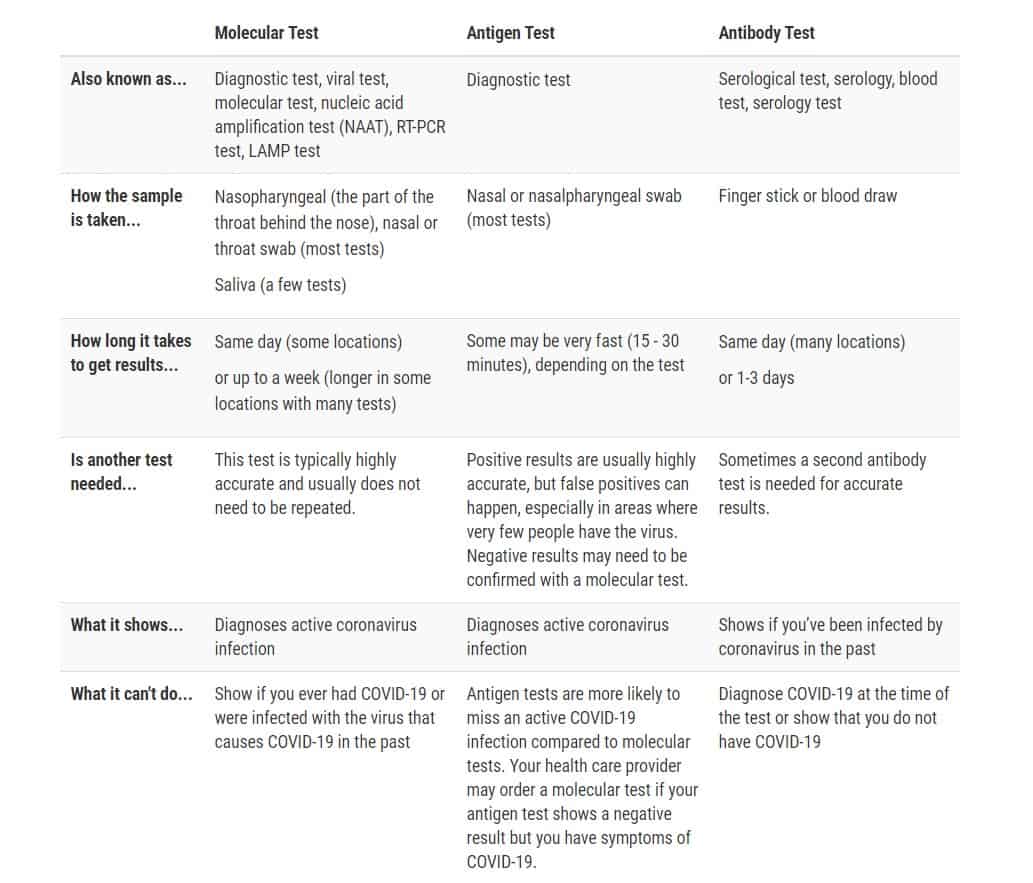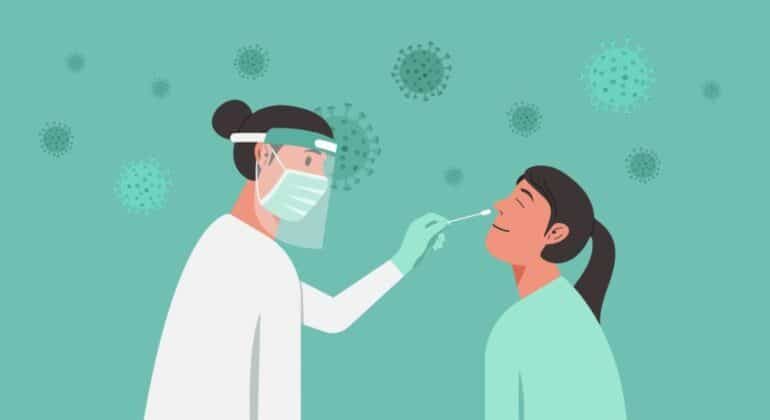Where and how to get Covid-19 molecular and antigen swab tests in Rome
With the first Covid vaccinations delivered in the UK, there’s hope on the horizon that Italy will receive the vaccine too. Nonetheless, coronavirus is still very much a part of daily life here in Italy with the yellow/orange and red zones are still in place. There have been 1.73 million recorded COVID-19 cases in Italy to date (as of 7th December 2020), with 913,000 people recovered but the loss of sadly 60,000. Tests are now fairly easy to get – with services available at medical testing centres, pharmacies, or at home tests where a special team come to your residence. However there are different types of tests and it’s worth knowing what they are, this article will explain the various tests, where to go for them and what to do if you’re travelling to Italy.
It’s always beneficial to take a coronavirus test and essential if you have symptoms. A negative result can give peace of mind to your colleagues, family and friends. A positive result means your quarantine must begin and others who have recently been near you need to get tested too. Whatever the result is, you’re keeping others safe and that’s important. It can also be reassuring if you have no symptoms, and feel fine, as a test can confirm the virus in asymptomatic people. A test is also important if you are travelling in or out of Italy, or going to another region for work.
Italy has 20 regions (e.g. Abruzzo, Lombardia, Veneto, Sicilia, etc.) Not many people know that each region autonomously manages its own healthcare services. So there are different rules depending on which region you are in.
Here is our comprehensive guide to getting tested in Rome, in the Lazio region.

Which Covid-19 tests are available?
There are 3 tests in total: 2 types of diagnostic tests that look for active coronavirus infection in your mucus or saliva and 1 type of blood test that looks for antibodies—evidence that your immune system has encountered COVID-19 before.
1) Molecular RT-PCR COVID 19 swab test or ‘tampone molecolare’
The nasopharyngeal and throat RT-PCR swab tests detect the presence of COVID-19 genetic material in nose and throat. This test is typically highly accurate and usually does not need to be repeated. Test results are usually given 24 to 48 hours after getting tested.
2) Antigen Swab Test or “Test Antigenico” or “test rapido“
Rapid antigen tests look for the surface proteins of the virus (antigens) and not the viral genome (as is the case with the molecular test). The sample is collected using a nasopharyngeal swab and the response times are very short, around 15 to 30 minutes. The results of the tampone rapido are less accurate than the one of the tampone molecolare. In fact, if you test positive to the antigen test, you’ll have to get tested with the molecular test. The antigen test isn’t considered an accurate diagnosis at a clinical level. Pharmacies, doctors surgeries and laboratories offer antibody tests.
3) Antibody test (aka serology test or blood test) or ‘test sierologico’
This test looks for antibodies of the coronavirus. Antibodies are proteins your immune system produces to fight off a foreign invader, such as a virus. A COVID-19 antibody test cannot diagnose an active coronavirus infection. It is to clarify if you have been infected at some point in the past, even if it was months ago. Antibodies do not become detectable until at least several days after contracting a virus. A sample of blood drawn from the finger or arm is how the test is carried out.
How to get tested if you’re travelling to Italy?
Travel restrictions vary from country to country and some airlines require a negative result within a certain time period before your departure date. Consider this when booking a test and give yourself enough time. Airlines will provide you with information of the correct forms to fill out and the procedures to follow.
For further information on test locations the Rome Airport website has useful knowledge: www.adr.it/web/aeroporti-di-roma-en-/coronavirus as well as the Ministry of Health’s web site.
Where can you get tested for Coronavirus in Rome?
From pharmacies to authorized centers, there are a few places where you can get tested for Covid-19 in Rome. You can even get tested at home with MedinAction: they offer Covid-19 antigen rapid and PCR Molecular swab tests directly at home from €90, or with International Care Rome or at UPMC Salvator Mundi International Hospital on Viale delle Mura Gianicolensi, 67.
Here is list of active drive-ins where you can get a molecular test in the Lazio region
Here is a list of the pharmacies where you can get an antigen or antibody test in Rome.
Here is a list of the authorized centers where you can get a molecular test in Rome
Here is a list of the authorized centers where you can get an antigen test in Rome
How much does it cost for a Covid-19 test?
The region has capped the cost of a private antigen test at €22 while molecular tests cost €60.
Do you need a prescription for a test?
Previously a doctor’s prescription was required but now it is not necessary in the Lazio region.
Please note that this article gives advice but it is always best to consult a medical specialist regarding COVID-19 testing.





